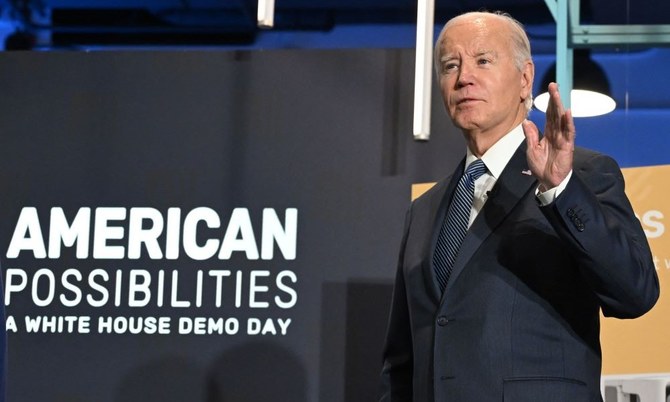
In May 2020, I wrote to then-chairwoman of the UK’s Conservative Party, Amanda Milling, Prime Minister Boris Johnson and the leaders of the party in both Houses of Parliament with regards to Islamophobia in the Tory party.
Following the Equality and Human Rights Commission’s decision not to investigate allegations of Islamophobia, I sought to raise the importance of the party seeking a comprehensive solution to an underlying prevalence of racism within it. Unsurprisingly, the prime minister did not respond, reflecting a casual attitude toward racism against Muslims in the party, which surfaced again last week. On Jan. 23, Nusrat Ghani, a former transport undersecretary, spoke out about her dismissal in 2020 being down to her alleged “Muslimness” and that her faith “made colleagues feel uncomfortable.” Johnson has said he will launch an inquiry into Ghani’s claims.
As a member of the executive of the Conservative Muslim Forum and a long-term party member, what I wished to communicate to the leadership was that the significant number of allegations of Islamophobia within the party warranted a thorough investigation and disciplinary action for those involved.
After much cajoling and assiduous follow-ups, Milling did respond, assuring me that the party “remains open to people of all backgrounds and rejects abuse or discrimination on the basis of someone’s race or religion.” I was encouraged to learn that an independent investigation led by former EHRC commissioner Swaran Singh would look into all forms of prejudice and discrimination and go some way to addressing this issue. The prime minister, who has in the past found himself in hot water owing to his comments regarding Muslims, remained silent.
Singh’s report, published last year, found that “anti-Muslim sentiment has been evidenced at local association and individual levels,” but thereafter focused on procedural matters concerning the registration of complaints. It stopped well short of tackling the high-profile Islamophobic discourse of the likes of serving minister Zac Goldsmith and Johnson, which in many ways typified the futility of the exercise.
The 44,000-word report did not have the input of a single Conservative Muslim MP and, to many, was flawed from the outset. Its recommendation of a code of conduct and training were not what was required. Its legacy has been the quiet reinstatement of Tory councilors suspended after posting vile comments about Muslims, alongside the government’s rejection of a working definition of Islamophobia as adopted by the major opposition parties.
The allegations regarding Ghani’s sacking highlight the party’s flagrant disregard for such racism. In 2020, she informed the prime minister personally over comments allegedly made by Chief Whip Mark Spencer. Characteristically, he stated that “he could not get involved” and suggested she “use the internal Conservative Party complaints process.” Johnson also refused to see the issue as one that concerned the government, but rather suggested it be treated like a complaint made against a local councilor. After the story broke, another Conservative MP, Michael Fabricant, claimed that Ghani’s allegations were “a lame excuse,” as “she’s hardly someone who’s obviously a Muslim.” His comments have drawn widespread criticism from the opposition, but not from within. This episode has highlighted once again that the Conservative Party intentionally shies away from dealing with such allegations.
A party supposedly built on meritocratic principles has failed to safeguard the integrity of its Muslim members.
Zaid M. Belbagi
No. 10 spent the week trying to defuse the row, claiming that the fact the prime minister initially met with Ghani was a coup in itself. Justice Secretary and Deputy Prime Minister Dominic Raab again urged Ghani to make a formal complaint to the party. Ghani, rightly, reiterated that this would not be appropriate. This has highlighted that a party supposedly built on meritocratic principles has failed to safeguard the integrity of its Muslim members and, indeed, uphold the principles it supposedly represents.
Certain important urban seats were only narrowly won by the Conservatives in the last election — constituencies where the Muslim electorate is influential. More concerningly for the party, surveys suggest that more than 80 percent of British Muslims voted for Labour in 2019, owing in great part to the unmistakable whiff of Islamophobia with which the Conservatives have become associated. Should the party continue to harbor such sentiments, the reckoning will be at the ballot box.
Zaid M. Belbagi is a political commentator and an adviser to private clients between London and the GCC. Twitter: @Moulay_Zaid
Disclaimer: Views expressed by writers in this section are their own and do not necessarily reflect Arab News" point-of-view












